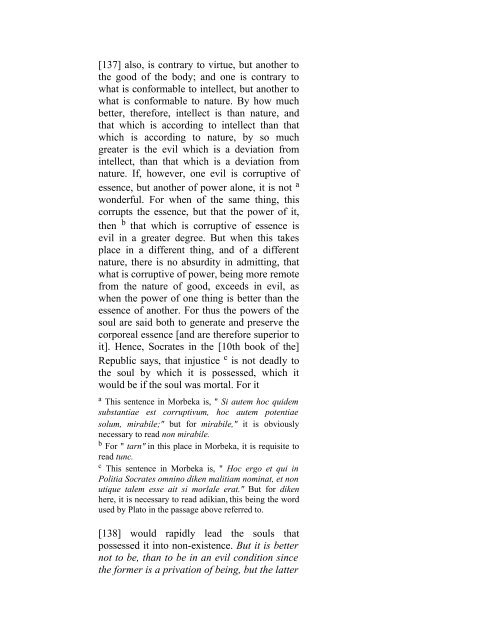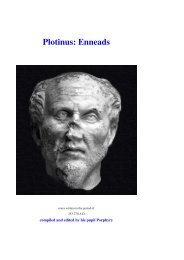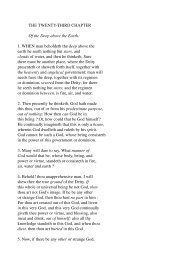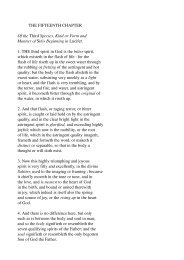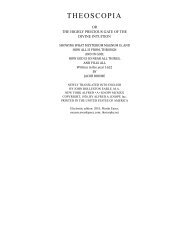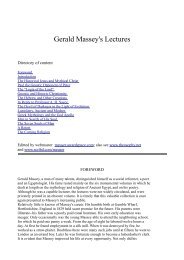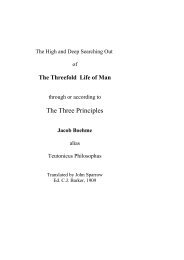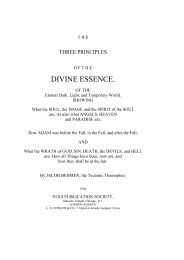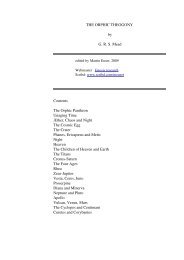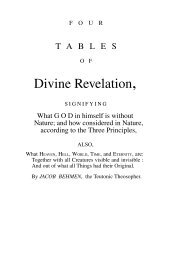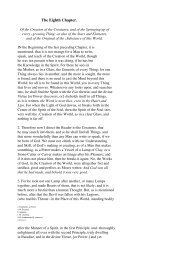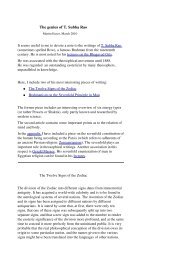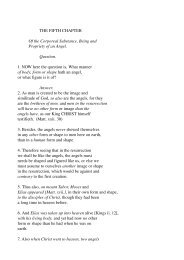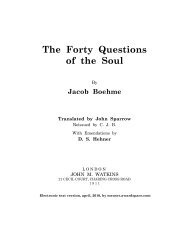PROCLUS, THE PLATONIC SUCCESSOR
PROCLUS, THE PLATONIC SUCCESSOR
PROCLUS, THE PLATONIC SUCCESSOR
You also want an ePaper? Increase the reach of your titles
YUMPU automatically turns print PDFs into web optimized ePapers that Google loves.
[137] also, is contrary to virtue, but another to<br />
the good of the body; and one is contrary to<br />
what is conformable to intellect, but another to<br />
what is conformable to nature. By how much<br />
better, therefore, intellect is than nature, and<br />
that which is according to intellect than that<br />
which is according to nature, by so much<br />
greater is the evil which is a deviation from<br />
intellect, than that which is a deviation from<br />
nature. If, however, one evil is corruptive of<br />
essence, but another of power alone, it is not a<br />
wonderful. For when of the same thing, this<br />
corrupts the essence, but that the power of it,<br />
then b that which is corruptive of essence is<br />
evil in a greater degree. But when this takes<br />
place in a different thing, and of a different<br />
nature, there is no absurdity in admitting, that<br />
what is corruptive of power, being more remote<br />
from the nature of good, exceeds in evil, as<br />
when the power of one thing is better than the<br />
essence of another. For thus the powers of the<br />
soul are said both to generate and preserve the<br />
corporeal essence [and are therefore superior to<br />
it]. Hence, Socrates in the [10th book of the]<br />
Republic says, that injustice c is not deadly to<br />
the soul by which it is possessed, which it<br />
would be if the soul was mortal. For it<br />
a This sentence in Morbeka is, " Si autem hoc quidem<br />
substantiae est corruptivum, hoc autem potentiae<br />
solum, mirabile;" but for mirabile," it is obviously<br />
necessary to read non mirabile.<br />
b For " tarn" in this place in Morbeka, it is requisite to<br />
read tunc.<br />
c This sentence in Morbeka is, " Hoc ergo et qui in<br />
Politia Socrates omnino diken malitiam nominat, et non<br />
utique talem esse ait si morlale erat." But for diken<br />
here, it is necessary to read adikian, this being the word<br />
used by Plato in the passage above referred to.<br />
[138] would rapidly lead the souls that<br />
possessed it into non-existence. But it is better<br />
not to be, than to be in an evil condition since<br />
the former is a privation of being, but the latter


